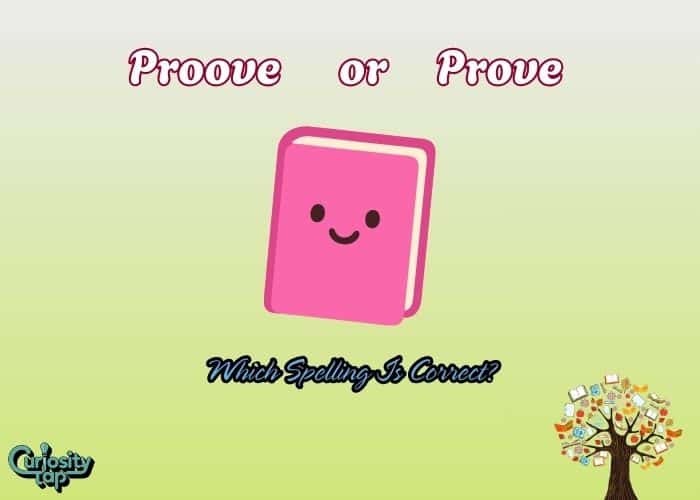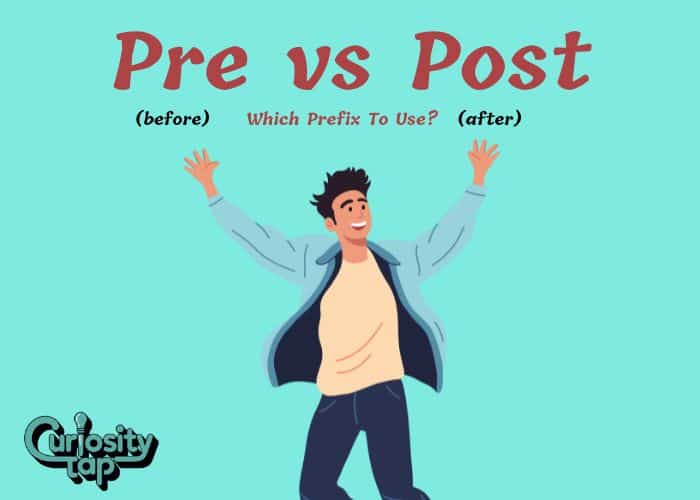Language learners, students, and even professionals often stumble over spelling. A common confusion is whether to write “proove” or “prove.”
You’ve likely seen both online, but which one is correct?
This guide clears up the confusion with rules, examples, and usage tips so you never second-guess again.
Understanding the Correct Spelling
The only correct spelling is “prove.” The form “proove” is a common misspelling and has never been standard in English dictionaries (Merriam-Webster, 2024).
- Prove (verb): to demonstrate the truth, validity, or existence of something through evidence, facts, or results.
- Proove: ❌ incorrect spelling; not recognized in formal or informal writing.
Why Do People Write “Proove”?
1. Influence of Similar Words
Learners often compare it to words like approve or improve, which contain “oo.”
This creates the false assumption that “prove” should mirror that pattern.
2. Pronunciation Confusion
Since the long “oo” sound in “prove” matches the double-o spelling in words like move or groove, many mistakenly assume “proove” must be correct.
Usage of “Prove” in English
Everyday Examples
- “She had to prove her identity with a passport.”
- “The lawyer will prove his client’s innocence.”
In Academic or Legal Settings
The word often appears in formal contexts where evidence and verification are critical:
- “The experiment will prove the researcher’s hypothesis.”
- “You must prove your case in court.”
Also Read:
Momma or Mama: Which Spelling Is Correct?
Pronounciation or Pronunciation: Which Is Correct?
Combating or Combatting – Which Spelling Is Correct?
Gooned: Meaning, Origins & Uses Explained
Input or Imput: Which Is Correct? Meaning & Usage
Real-Life Anecdote: How One Misspelling Changed the Tone
A university student once submitted a thesis draft where “proove” appeared 18 times.
The professor flagged it as a sign of carelessness, even though the content was strong.
The student later admitted that spellcheck didn’t catch it because of added citations and formatting.
This small oversight cost them credibility and required extensive corrections.
The story highlights why mastering such distinctions matters not just for accuracy, but for professionalism.
Checklist: How to Avoid Misspelling “Prove”
| Step | Action | Example |
|---|---|---|
| 1 | Remember “prove” has only one “o” | “I can prove it.” |
| 2 | Use spellcheck but verify manually | Grammarly or MS Word |
| 3 | Associate with related terms | proof, proven |
| 4 | Double-check formal writing | academic, legal, business |
Common Phrases with “Prove”
- Prove a point – demonstrate the truth of an argument.
- Prove someone wrong – show that another person’s statement was incorrect.
- Prove useful – turn out to be beneficial.
Notice none of these use “proove.”
FAQs
Is “proove” ever correct in British or American English?
No. Both American and British dictionaries list only “prove.”
Why do some people still use “proove”?
Mostly due to spelling mistakes or phonetic assumptions.
What is the past tense of “prove”?
It can be “proved” or “proven,” both are correct depending on context (Oxford English Dictionary, 2023).
Is “prove” related to “proof”?
Yes. “Proof” is the noun form, while “prove” is the verb.
Can “prove” be used in science?
Yes. Scientists use it to indicate evidence supports or verifies a hypothesis.
Pros and Cons of “Prove”
Pros
- Universally correct spelling.
- Clear meaning across academic, legal, and casual use.
- Rooted in historical English usage.
Cons
- Sometimes confused with “proof.”
- Past tense variations (proved vs proven) may confuse learners.
Conclusion
So, proove or prove – which is correct? The answer is simple: only “prove.”
Writing “proove” undermines clarity and professionalism.
Whether you’re a student, employee, or writer, mastering the right form avoids embarrassment and strengthens communication.
Call to Action
Want to sharpen your English and write successfully every time?
Check out our Grammar Checker Tool and never second-guess your spelling again!
Read our guide on Common English Misspellings to boost your skills even further.
Sources List
Sources:
- Merriam-Webster Dictionary. (2024). Prove. Retrieved from: https://www.merriam-webster.com
- Oxford English Dictionary. (2023). Prove vs Proven. Retrieved from: https://www.oed.com
- Cambridge Dictionary. (2024). Prove definition. Retrieved from: https://dictionary.cambridge.org
Read more knowledgeable blogs on Curiosity Tap
Is this article helpful?

Jackson Pearson is a passionate educator and language enthusiast behind the blog Jackson Pearson. With years of experience in teaching and writing, he specializes in simplifying complex grammar rules, breaking down tricky vocabulary, and crafting learning guides that are both engaging and practical. His mission is to help readers boost their English skills whether they’re beginners or brushing up for fluency. Through every article, Jackson brings clarity, structure, and a spark of curiosity to the world of English learning.



